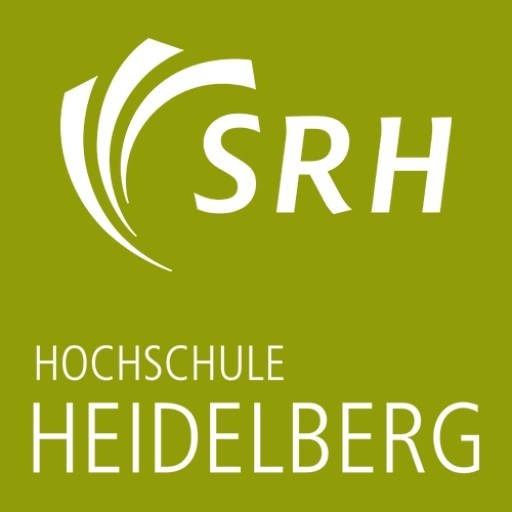Photos of university / #universitaet.tuebingen
The Master’s programme in Astro- and Particle Physics at the University of Tübingen offers students a comprehensive and rigorous education in the fundamental elements of modern physics. Designed for individuals who are passionate about understanding the universe at its most basic level, this programme provides in-depth knowledge of the underlying principles of astrophysics and particle physics, along with advanced training in experimental and theoretical techniques. Students will engage with topics such as high-energy physics, cosmology, astrophysical phenomena, quantum mechanics, and the Standard Model, gaining the skills necessary to pursue research careers or further doctoral studies. The curriculum combines coursework, laboratory work, and research projects, encouraging critical thinking, problem-solving, and innovative approaches to scientific questions. The university’s strong links with research institutions and international collaborations enable students to participate in cutting-edge projects, access advanced equipment, and contribute to ongoing scientific discoveries. The programme emphasizes not only theoretical foundations but also practical skills including data analysis, computational methods, and instrumentation. Graduates will be equipped to work in academia, research centers, or industry sectors related to space exploration, medical physics, or technological development. This interdisciplinary approach ensures graduates are versatile and well-prepared for diverse challenges in the scientific community. The programme also aims to foster a stimulating academic environment, promoting exchange and collaboration among students and faculty, and preparing graduates to be future leaders in astrophysics and particle physics research worldwide.
Study Outline
The Master-Programme is a 2 year consecutive study with a modular structure where in the first year the students have to attend lectures, seminars and labwork consisting of 60 ECTS credit points. In the first term all students have to take two basic introductory modules Astronomy & Astrophysics and Particle Physics consisting of lectures and exercises, which lay the foundations for all students. These are augmented by an obligatory seminar and labwork. In the second term students can choose modules from a variety of different topics. In the second year the students will begin with the scientific work on a research topic of their choice in the areas of the Kepler-Center and finally write their Master Thesis, all together again 60 CP (30 for acquiring research oriented skills and 30 for the Thesis).
Applicants must have completed a Bachelor of Science degree in physics or a similar degree with a grade 2.5 or better.
We expect broad interest in natural science as well as willingness to familiarize and work with complex scientific details, and to be able to scientifically communicate in English in written and oral form.
English is the language of instruction and examination in the degree program. The language knowledge requirement is level B2 of the Common European Framework of Reference of for Languages.
The financing options for the Astrophysics and Particle Physics Bachelor's program at the University of Tübingen primarily encompass a variety of funding sources available to students. Tuition fees are generally not charged for undergraduate studies at public universities in Baden-Württemberg, including the University of Tübingen, making the program accessible to a broad range of students. However, students are responsible for their living expenses, such as accommodation, food, transportation, study materials, and insurance. These expenses can vary depending on individual circumstances and lifestyle choices.
To support students financially, the university offers numerous scholarships and funding programs, which are often awarded based on academic achievement, financial need, or specific criteria such as nationality or field of study. The Baden-Württemberg Scholarship Program provides financial assistance to talented students, and there are also external scholarship opportunities from government and private foundations. Students are encouraged to apply early and to explore the options available through the DAAD (German Academic Exchange Service) and other organizations supporting international students.
In addition, students may apply for student loans or part-time work opportunities during their studies. The city of Tübingen offers various job opportunities for students, which can help cover daily expenses. Many international students also benefit from grants and funding schemes aimed at promoting foreign study experiences.
Financial planning is an essential aspect of preparing for the studies, and the university's student advisory services offer guidance regarding budgeting, funding applications, and financial support options. Furthermore, students should consider the costs associated with health insurance, which is mandatory in Germany, as well as costs for visa applications and administrative fees for international students.
Overall, while the degree program itself does not charge tuition fees, students must secure funding for their living costs and other personal expenses through scholarships, part-time employment, student loans, or family support. Careful financial planning and proactive application for available funding opportunities are recommended to ensure a smooth stay and successful completion of the program at the University of Tübingen.
The Master’s degree program in Astro and Particle Physics at the University of Tübingen offers students a comprehensive education in the fundamental aspects of the universe. This interdisciplinary program combines theoretical physics, experimental techniques, and observational astronomy to prepare graduates for careers in research, industry, or further academic pursuit. The curriculum emphasizes advanced understanding of astrophysics, particle physics, and cosmology, allowing students to explore the mysteries of the universe, from the smallest particles to the largest cosmic structures. Students gain practical experience through laboratory work, data analysis, and participation in international research projects. The program is designed to be flexible, enabling students to tailor their studies according to their interests, whether in experimental setups, theoretical models, or computational methods. The faculty comprises renowned scientists who are actively involved in cutting-edge research, providing students with exposure to the latest developments and fostering networking opportunities in the global scientific community. Additionally, partnerships with research institutes and observatories facilitate access to state-of-the-art facilities for observational and experimental work. Graduates of this program are well-equipped to pursue doctoral studies or to enter careers in research institutions, space agencies, or technology companies specializing in scientific innovation. The program typically extends over four semesters and includes coursework, seminars, and research projects, culminating in a master’s thesis. The university’s location within a vibrant scientific community in Tübingen offers students an enriching environment for academic growth and collaboration.





